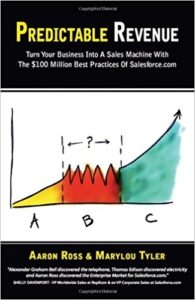
Most believe giving bonuses is one of the greatest incentives for hard work. Sure, in certain places bonus plans can work wonders, but in other places they actually serve as a distraction. In #9 of Entrepreneur Disrupted, Dave Asprey and Jay Abraham challenge that philosophy through both sides of the economic lens. Learn how to use bonus plans effectively and efficiently as an employer, how to examine the forces that motivate us all to work harder, and how to use alternative methods that can achieve the same result within your team without having to spend more money on bonus plans (Yes, it’s entirely possible!) Learn how to distinguish the pros and cons of providing bonuses vs. giving higher wages. This is a crucial and timely issue riddled with personal business stories and adventures from both Jay and Dave, so be sure to pay attention – and hopefully learn a lot.
Listen to the podcast here:
Entrepreneur Disrupted Mini-Series – #9: Bonus Plans
This episode is really stimulating. It goes hand-in-hand with our earlier episode on hiring. Dave and I will be approaching the topic of bonus compensation plans from a rather unconventional and surprisingly disruptive point of view. Most entrepreneurs believe that providing a bonus for your team members is a sure fire Bulletproof way of motivating them to work harder, achieve more and go that extra mile.
Dave and I challenge that very foundational philosophy as we cover both the pros and the cons of incorporating a bonus plan into your business model. We go over how to use bonus plans effectively and efficiently. How in certain places they can work wonders, whereas in other places they serve as a deterrent producing negative results and a very volatile, disruptive and negative marketplace. We go over the forces that motivate all of us to work harder and we offer alternative methods and masterful strategies that achieve the desired result within your team without the use of ineffective bonus plans. We tackled the case of providing bonuses versus giving higher wages. These episodes are riddled with our personal business case studies stories and adventures from both Dave and my rather colorful experiences on the front lines of capitalism, so be sure to pay attention because I’m sure you’re going to enjoy as well as grow from this episode. Hopefully it will make a big difference.
Jay is one of the finest marketing minds on the planet. If you believe people like Tony Robbins or if you read Forbes where he’s been called out for that kind of stuff, but I’m learning through the course of hosting this show with Jay that in terms of self-promotion. He’s probably not the best self-promoter I’ve ever seen. Jay is a total marketing bad-ass. Our goal is to help you solve problems either as an entrepreneur, as someone who’s thinking about becoming an entrepreneur for the first time or maybe someone who works for an entrepreneur. Probably at least half the country works for an entrepreneur. If you can understand what’s going on inside the weird mind of an entrepreneur, it might help you become one and it might help you be more effective working with the ones in your life. If you’re married to an entrepreneur, you should be listening to this show because it might shed some light into all of those odd behaviors.

May I say that we want to solve problems, challenges, issues, and opportunities that are often not crystalline clear to you. You either don’t know your motivation or you don’t know you’re grappling with it or you’ve not crystalline clear on what it is, why it is, and what your goal outcome is. Our goal in these small segments is to give you clarity, give you a direction, give you understanding, and then give you strategy.
When I started Bulletproof, my company, and the main thing was around human performance for everyone. My goal was all this stuff that no one told me when I was twenty that would have absolutely changed how I performed and the power I would have had to do with my life. The goal with Entrepreneur Disrupted is specifically to say when I wanted to be an entrepreneur, when I started the first e-commerce company ever selling t-shirts out of my dorm room that basically helps me pay for my tuition, but I didn’t grow or scale it or even know anything about how to do. If I ever had the knowledge that I’ve gained over the last twenty years and the knowledge you’ve gained over the last substantially more than twenty years, Jay, I would have had an unfair advantage in executing well and just doing what I wanted to do. I would’ve struggled a lot less. The point here is that you can probably be a more successful entrepreneur with a lot less struggle, so learn from our bruises, cuts and things like that.
The problem we’re going to solve for you is an interesting one and this is useful even if you’re about to interview for another job and you’re not ready to become an entrepreneur yet. That is the issue of bonus plans. When you’re an entrepreneur, you’re cash poor usually. You don’t want to throw cash around, but you want to hire a player. One of the things you can do is you can say, “I want to pay you a low base because that’s all I have and I’ll give you a big bonus plan because you’re going to help me sell a lot more, the company’s going to grow.”There are pros and cons to this. I’m going to pick Jay’s brain and he’s going to pick my brain about what we think about how to use bonus plans most effectively, what’s good about them, what’s bad about them, and why I don’t have many of them anymore. Jay, what’s your take on using a bonus plan? This is separate from sharing equity or doing a strict profit sharing program. I mean an individual bonus program.
Bonuses have many gradients, hard and soft, financial insight, acknowledgement, and discrete. The first thing I want to know is what rings your bell? That requires something most entrepreneurs aren’t interested in, which is really getting to know the deal. That’s the first thing.
When you say most of entrepreneurs aren’t interested, you mean in getting to know their employees?
Yes.
That’s true at different depths. In my case, I am interested in getting to know employees. However, Bulletproof is to the point where we’re distributed and we have too many employees. If I was to say, “I want to spend an hour with each employee each week,” there’d be no more hours in the week. I wouldn’t do my job, I wouldn’t see my family. There’s an interest but there’s an inability.
One of the greatest networkers I ever met was the Founder of Bottom Line, Marty Edelston. He had the ability that everybody he met, he had a system where they knew something very meaningful about them and he was able to have his staff prepare all kinds of things that acknowledged different people in different ways. They would get little gifts, little articles, little books before links were available. These are people that were vendors, colleagues, contemporaries, competitors, and he had the greatest relational capital in the world. I am not suggesting that they have to spend an hour a day every week with 60 people, but I am suggesting that if you knew on a profile what they read, what they liked, what they were interested in, and if it was cooking they got from you occasionally, a notice you clipped where you had some intern do from the paper of an event that was coming, or an article about something of an event that was cool, related that just occurred in the New York Times that you would bond, acknowledge and demonstrate value perception of much more acute, probably immeasurable but acute level.
I would probably benefit more, and I say probably just because I haven’t tested it, but the argument is very solid. By using some of the systems I have in place for external networking to use those more with people in the company.
I want to know about them. I want to try to grasp what their big motivators are. Certainly money is a motivator, but acknowledge is a motivator, time off is a motivator. Being distinguished in front of everybody and just acknowledged is a motivator. We have a former client that does employee loyalty programs and they do it for Walmart. They put a plaque up and it’s the Employee of the Month. They found seventeen distinctions so almost everybody wins. It sounds silly, but it brings out performance superiority, renewability, and re-generative compassion. I want to know what the turn-ons are and then I want to factor in. It’s not really systematic. It’s probably more intuitive; when, where and how. I do certain things to demonstrate my ethos and my contribution. We have a very small business, so I have sales people. We try a lot of things and I’m wildly experimental. If something doesn’t work and the salesperson who’s predominantly compensated on the result works his or her ass off, I’ll give them all the money. I’m big in nuances.
Doing something without explaining, educating, and not being vain, glorious, but being intelligent and strategic about it is important so I’ll say, “I thought this was going to make you $30,000.It brought in $10,000. $10,000 isn’t going to change my life, but it’ll pay your rent. I want you to know I’m committed to you as much.” This is probably a Robert Cialdini. He’s a master of persuasion. “I’ll go get into reciprocity later, but I’ll always establish ethically. I know that you are loyal and that you are giving everything you can and you’re going to give even more, and by knowing that we are there for you and we’re not going to make you take the hit.”
I do things like that all the time because $10,000 isn’t going to change my life, but not getting a commission for a guy who needs $8,000 or $10,000 a month to live will. I do certain things like that. We had a client turn out not to be what he was supposed to be, and he blew on us. He owed me about $100,000 dollars and I could have sued him. I can be very good in litigation, but it’s very nonproductive. We resolved the deal, but I made him send money to me that is going to be re-conveyed to the person that managed the account because the person was really deep in it. I brought the guy in and I said, “You did everything you could, but the guy turned out not to represent the values and the long-term commitment to himself in this business. I was fooled and you were fooled because you’re younger. I should’ve been more aware, but you put so much into it that I want you to know that it’s appreciated by me.” I do things like that all the time but I don’t do them like, “Here’s money.” I take the time to explain. I don’t give anything free. I explain I’m buying something for you when we give it to the market and here’s why I’m doing it. I think the reason why is it’s very underutilized in communication and it’s the foundation of all communication. Why you’re doing something, why you’re not doing something. That’s one thing we do. We tie people to performance if their function can be tied to performance.

There’s a bad habit that I learned in Silicon Valley. Google does it, a lot of other places do it, and there are great arguments. There are a whole lot of books written about how it’s good and this is the MBO, Management By Objective. You take someone and you basically say, “This quarter, you’re going to do these three things. You’re going to be graded on these three things. Then there’s management oversight and this is going to control your bonus.” You create all these systems like that, and this comes out of Edward Deming.
I’m a giant fan of process improvement. If you look at what a knowledge worker does, oftentimes it doesn’t work very well for that. I spent a huge amount of my career being managed with MBOs. When I worked at that UK-based company, I was Head of Marketing. It was particularly frustrating because one quarter, we had the best performing network equipment in the world even though no one had heard of us. It was in the load balancing space, so highest throughput for unit of power use kind of metric. We got to write our own MBOs. No sane person’s going to write an MBO they can’t meet, which is one of the problems with MBOS. I wrote an MBO that said, “I will complete this task with Sun Microsystems,” I needed their multimillion dollar giant machine because it was the only thing that could run our software, so I said, “I’ll only complete it if one of their machines is available, because if they sell their demo machine, then I can’t do this.” The deal is written very clearly. I hit the MBO as long as I’m ready for the test because this is out of my control. Sun sells the machine out from under us, which was good. They should have.
You got your bonus?
No. That’s where it gets interesting. I wrote the bonus. I should’ve got the bonus but the CFO was like, “I’m not paying you this bonus.” I’m like, “We have a legal contract here.” It was to the point I was ready to quit anyway, but I’m like, “I have attorneys. This is our deal.” That’s an example of why having an MBO for someone who’s on mission, it’s actually an incredible problem. When I started Bulletproof, I was like, “We’re going to set up these MBOs. We’re going to have a quarterly thing. There’s going to be three things.”Then the negotiators are like, “The first of the three things is easier.” You end up spending like two, three or four hours per person negotiating MBOs to make sure they’re right, and this one’s worth four points. You can make these incredibly complex and entirely not useful systems, and after about a year of doing this, I realized everyone I hire knows our mission. We’re a mission-based company. We’re out to disrupt big food. We are changing the lives of millions of people. Everyone here is working for that goal. They will not change their behavior based on an extra 10%. I said, “I’m not doing that anymore. No more bonuses like that. Instead what we’re going to do is we’re going to pay you. Your salary a little bit higher.”
If you’re going to pay them more, how, when, why, and what?
What I did when we started hiring, I said, “No, we don’t do bonuses here. We pay you a good way. It’s a salary you’ll be happy with.” The people who had bonuses for the most part, there might be a few stragglers left. I’m pretty sure we got them all. I said, “We’re not going to do bonus but here’s a raise.” The raise may be slightly less than the bonus but it’s predictable. If you’re a normal consumer like I have been ever since I lost my $6 million when I was 28, having predictable income is life improving. Knowing you can make your house payment this month and a budget for vacation versus, “I sure hope that in two months I get that extra several thousand dollars, but I’m not sure so I can’t rely on anything. I’m not going to get the good deal on tickets to Hawaii.” It sucks. I am opposed to MBOs. I’m a huge fan of objectives. I just don’t think tying bonus to objective is a healthy practice if you have people who are on mission, on point, who are A-players. If you have a bunch of people who hate their jobs and hate you, who worked for you, maybe MBOs work, but I am not going to be that kind of entrepreneur. I don’t want to do that. It’s boring.

You said, “Predictable revenue.” There’s a great book called Predictable Revenue by Marylou Tyler. They were the ones that transformed sales force and it talks about how to create far more predictable revenue for your business by knowing the different gradients of prospects and buyers. I thought about why I was so non-concrete. My daughter handles most of the operation with people. I do two things. I have a small business that is me mostly one-on-one, transforming and customizing, marketing makeovers, strategy restruction, business model remodeling, preemptive competitive position, ancillary new sources and it’s all high performance, measured not just on profits but on different categories, lifetime value, integrating into the strategy requirements that feed the growth.
I tend to be in my professional life, fixated on trying to motivate people to achieve what they think is an impossible future in the creation of the quality revenues, sustainable revenue, profitable revenue, and repetitive revenue that will feed the kind of things you are talking about. Any dialogue I get into that, other than talking about everybody being preeminent and on a mission, I will probably do a disservice. On my own team, I get them very motivated not just about making money, but about the fact that when they persuade somebody to pay me a $120,000 for a couple of calls a month, we now sell people auditions.
You sell them auditions? What is that?
It means they pay $120,000 to audition for six months to see if we’re compatible enough to work out a more meaningful participating type of a relationship.
This is for a couple of calls a month?
My calls are a little different than these. I motivate people not to make the money, but that the money is the reward and acknowledgement, just like you would your people for helping me transform a life or a business life as an entity that is already struggling and focused on adding meaningful superior value, transformative value but don’t know how to maximize it. It’s a very more complex integration.
People at Bulletproof know this too. This may be different because we both have mission. My friend Steve, one of my business school buddies, he started a successful medical insurance billing company and it got acquired, and he’s done fantastically well. He’s been far more successful than I have, although you’ve probably never heard of him. I look at that and I imagine that the comp and bonus structure there may be very different than what it is in a mission-oriented company. When you trained the entire Bulletproof team, we didn’t talk about compensation, but you made a plaque and it was really kind. You sent it without any expectation there that said, “How many minds will you transform today?”
People at Bulletproof all have a plaque from Jay Abraham that says this. For me, a bonus plan is like, “How many lives did you transform today?” That didn’t really matter. Do you get your 10% bonus because you transformed? No. The value of what we do is inherent in what we do and that’s why you get paid a fair, healthy and good amount not, “Here’s a little carrot you have to run and chase.” The people who are already working as hard as they can because they know how important it is. They’re not going to work harder because they might get a bonus. I’m introducing uncertainty, which I don’t want to introduce to my people. I want them to know they’re taken care of as far as bonus goes.
You’re introducing more certainty of purpose and much higher ignition of passion by doing the things we’re talking about. Not my work with revenue generators, but by tying them to this universal crusader mission.
A lot of people who are looking to start a company, they have a mission. Some of them just want to make a lot of money. If you’re one of the, “I want to make a lot of money and I haven’t,” I’ve tried to start companies like that many times and it doesn’t work.
Any company depends on how lopsided it is one way or the other, whether it’s lopsided sales or marketing or lopsided in operation fulfillment and logistics. What I’m saying has relevancy to expanding, multiplying, maximizing, sustaining, quality, predictable, ever hopefully compounding revenue because that may or may not be, depending on whether you use inside, outside, contract people, how you compensate.
It does make a difference. For outside contractors, one of the most important things you can do is a bonus plan where it’s like, “We agree we’re going to pay you $20,000 for whatever this task is. I’m going to pay you an extra an extra $5,000 if you get it done before 60 days. Better yet, every day before 60 days, you get$500 extra but every day after you lose $500.” That is the best bonus for an outside thing.
If we’re looking at employee conflict, I want to hire someone. I want to bring him in. When you’re starting, a bonus plan probably makes sense if you’re cash constrained because you don’t have the cashflow to pay them and then you need to earn the money. You can tell them that, but I would say the complexity as a CEO of managing multiple MBOs for everyone, every quarter, this whole giant, publicly traded company is like Successories. They’re like multiple hundreds of millions of dollars in revenue. Everyone fills out a little form and turns what it’s supposed to be a conversation about what matters most and how do we execute into, “Did I tick the boxes?” This is necessary in giant companies perhaps but not for a mission-based entrepreneur.
It’s a distraction, which is somebody that no one taught me and I wish I’d have known that. I track whether people are doing what they said they’re going to do, but they don’t get paid an extra nickel just because they did what they said they’re going to do. They got paid the extra nickel because I know that they care about what they said they’re going to do. If they didn’t do what they said they were going to do, then we need to talk about it and figure out, “Did they do something else even more important? That’s what I really wanted them to do.”
Number one is never mind. Number two is I’ve seen not in the loftiest companies but very interesting compensation pools that were divided into two parts. Part one, it doesn’t have to be equal. We’re equally distributed in a pro rata basis at certain corporate achievements. The other part is we’re arbitrarily rewarded for distinction above and beyond the call of duty. I’m not suggesting that’s good or bad. The thing that I drive you and I will drive our audience crazy is that I’d been exposed to 50,000 different ways to do everything.

I’m not one size fits all. I’m going to come from an absolute weighted skew of focusing on high performing improvements that require less or no more time, money, effort, but use the asset, research activity, opportunity, connection, communication, prospect, buyer, distribution relationship better. Part of my necessity is to find ways for management to protect and reward their revenue-generating people for opening up to non-linear thinking.
That is so important to have non-linear thinking. The bonus structure was destructive of non-linear thinking. There’s one case where bonuses do make sense, and that’s for people with a quota. If you’re an entrepreneur who’s never worked with a good or even a bad sales manager, maybe you watched Glengarry Glen Ross, then you think that’s how bonuses work. There’s a bit of accuracy in that movie. We had incredibly fast sales growth when I was at that company Exodus, the creator of modern cloud computing. That sales velocity came from our head of sales, who’s since passed away. His name was Sam Mohamad and he would drive the salespeople. He came from Oracle, which has a very brutal sales culture, but he would push and push on the sales guys.
The sales guys would make sometimes hundreds of hundreds of thousands of dollars. The top sales guy got Sam’s Ferrari with a license plate that said, “Was Sam’s” on it because he sold $10 million and his quota was a million. What I loved seeing when I left the consulting role and I became part of the sales team, which was part of my career plan, I didn’t carry quota, I’m not a quota carrying sales guy, but I was the guy in the room with the quota carrying sales guys because I was the engineer who could explain what we were going to do.
What got weird was watching them sit there and the base was very low for salespeople. They could barely make house payments, much less put gas in their car if they didn’t hit their numbers. They’d sweat and sit there and run through the list once a week. “What percentage of close is this?” It was ruthless and militaristic, but they are the bonus plans that work for the sales mindset. Someone who goes out and likes to sell, there is an incredible transactional thing and an outsized success, “If your quota was $1 million and you sold $2 million, we keep paying you more and more.” There are types of roles that are coin operated. You pay them more, they run harder, they run faster. In a sales position, if we had an inside sales force, we’re at a dial for dollars. I would be very happy to pay those.
I’ve seen far too many companies, larger ones because I have a son who has represented a lot of large pharmaceutical companies, and they have a tendency to be very implicit, lay abstract when they’re recruiting about,” You’re going to have this great bonus.” Then you get in and you find out they doubled it from last year. That’s where you have to have a mutual respect for one another, number one. Number two, if you’re going to have someone you want to be high performance, the assumption is everyone came from an environment and they were trained. Training is very rarely consultative advisory training. It’s very rarely maximum process training. It’s very rarely networking training. It’s very rarely relationship training. It’s usually product knowledge training, and so you’re imposing on people. That’s where it gets pressurized.
If you say, “You figure it out. This is your old territory.” Even if you’re not good at selling every kind of product, you’re not good at selling every kind of industry, most entrepreneurs shoot themselves in their corporate genitalia by imposing on the sales people attributes, skill sets, knowledge, and proficiencies that they’ve never mastered. Oftentimes, they’ve never even validated. One of my sons was offered a job with a company that was a startup and they’d never sold one of them. I said, “Did they give you a plan? Did they show you empirically validated 25 that went that way?” He said, “No, they’ve got none.” I said, “They’re saying you’ve got to figure it all out.” There’s a mutual responsibility.
There is a mutual responsibility and there’s a downside to bonus plans that I’ve seen multiple times in my career in sales. I once caught a salesperson editing a specification sheet. The customer said, “If it does this, I will pay you.” In this case, it was tens of thousands of dollars that was going to go in the salesperson’s pocket. They edited out, this one word about the way the security worked in order to meet customer requirements. Editing a contract was an unethical behavior, but it was one of the things where there’s so much pressure because of the bonus, where it’s like, “The customer is never going to care, the person that feels a harmless change.” The risk of being sued later is much higher. Some of the highest performing salespeople were famous for leaving bodies in their wake. They hit their number, but every deal was odd.
Are they preloaded in quarter?
Sandbagging is a big issue when you have bonuses. People say, “It’s getting really hard to sell $10,000 this month.” They know they’ve got $20,000 in the bag but they want the bonus. Good sales managers deal with this. If you’re an entrepreneur, you’re probably not a good sales manager unless you’ve done it before. You better have one on your team if you’re going to use bonuses that aggressively.

We ought to do a segment on what’s wrong with this picture because I’m paid more to think what’s going to go wrong than right. Most people have enough experiential or as much expansive scenario-based understanding of things like that. They get all happy until they find out promises were made that can’t be filled, orders were loaded in, they gave him a deferred payment. Unfortunately, this goes back to cultural and ethical compass, moral compatibility. If you hire people who are not in alignment with what your qualitative and your long-term ethical mission is, you’re going to get a bad outcome.
We’re cranking through all the things that we think about when working with a client or running his own company and things that I’ve learned. For you, seeing how we think can be really valuable and we have a whole agenda of things that we’ve identified ahead of time that we want to do episodes on. You would benefit from hearing about this or from thinking about this or understanding that it’s a metric because no one taught me how to think as an entrepreneur. I had to walk into a lot of barbed wire fences before I figured that out. If you learn how to think or a different way to think about your business, your chances of making a disruptive business and of just increasing your performance and decreasing the amount of work it takes to do that, your chances go up, and that’s why we’re here. The only benefit that we’re getting out of this is that we get the time to have an excuse to dig in on this in a way where I’m learning things from my own business.
We’re having fun and we’re genuinely giving back for you. If you like this, let us know. If they’re doing it on the Facebook page, say what’s helpful, say what’s not helpful. Click like on iTunes and all the normal things you do to support a show like this. If this isn’t working for you, I also want to know. If it’s a total waste of time to say it. Jay and I are listening, but we will continue to create new episodes based on ideas that we have. I’m putting them on the list and we’ll talk about all those things, but you control the list. Say what you want more of, say what you want less of, and I will do my very best to cover it and so will Jay.
You want to know how to kick ass as a human being? Go to Bulletproof.com. You want to know how to be a kick ass disruptive entrepreneur? That’s all we talk about here. The other place you might want to go is to Abraham.com, which is Jay’s website. He’s so humble in his way of self-marketing, he never describes all the cool stuff he does, but his website is not like that. If you want to who you’re learning from, go to Abraham.com and see all of the content there. There’s incredible business value specifically around marketing on his website, so check it out.
Important Links:









